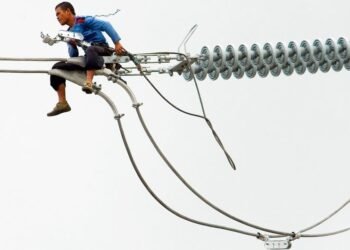Vice President, Dr. Mahamudu Bawumia has disclosed that government has reduced the depreciation rate of the cedi by 50 percent since 2017.
In his statement, he indicated that Ghana runs a flexible exchange rate which is dependent on market forces, albeit the exchange rate invariably is determined by the inflation rate.
Speaking in an interview on Peace FM, he revealed that although government has made efforts at maintaining a low inflation rate, by this means, affecting the strength of the cedi positively.
“Ghana runs a flexible exchange rate regime and not a fixed exchange rate regime. So the exchange rate will be dependent on the market forces but fundamentally the exchange rate will be determined by the inflation rate, [with] all other things being equal. So, if you have high inflation, you will have higher depreciation. If you have lower inflation, you will get a lower depreciation.
“So, that is the fundamental rule. We didn’t say we were going to lock the exchange rate at one rate but essentially lock it within the range of fundamentals such that the lower inflation rate will produce a lower depreciation rate [of the cedi]. Before we assumed office in 2017, the cedi was depreciating at 18 percent annually on average. But during our tenure from 2017 to 2019 it was 8.7 percent on average. So, it is 18 percent versus 8 percent. So we have reduced by 50 percent the rate of depreciation of the currency.”
By far, Dr. Bawumia believes the performance of the cedis has fared better under the Akufo-Addo administration in comparison to the onetime Mahama administration.
In furtherance, the Vice President added that the NDC failed to continue the good fundamentals the Kufuor-led administration left behind thereby quadrupling the depreciating rate of the cedi in its 8-year rule.
“The way the currency was going under the NDC administration, the currency was 1 Ghana Cedi to 1 dollar almost at that time [2009] but they left office with 4 Ghana Cedis to 1 dollar. So it was a quadrupling of the nominal rates of the Cedi and if it had followed on that trajectory, it would have been 16 Ghana Cedis to 1 dollar.”
In addressing the condition of various sectors within the country, Dr. Bawumia iterated that, government has been able to stabilize the economy in all sectors, slowed down the rate of debt accumulation and also reduced lending rate.
“When we came into office, Ghanaians were saddled with a lot of difficulties but we have been able to manage the economy, delivered a few solid records. Our fiscal deficit between 2016 and 2019, we brought it down, 6.8 to 4.8 per cent. Between 2016 and 2017 and 2019, we had surpluses for three consecutive years and that was the first time in a decade; first time in a decade that we have had that then the rate of debt accumulation, increase in our debt stocks has also slowed down, decline in inflation, interest rate, we have also seen a decline in lending rate from 32 to 23 per cent.
“The monetary policy rate came down from 25 to 14.5 per cent, our trade surplus between 2017 and 2019, this is the first time in two decades that we have had trade surplus three consecutive years”.
“Our exchange rate depreciation, the rate of depreciation has been halved to 50 per cent less compared to what we inherited. That is a major achievement.”




















